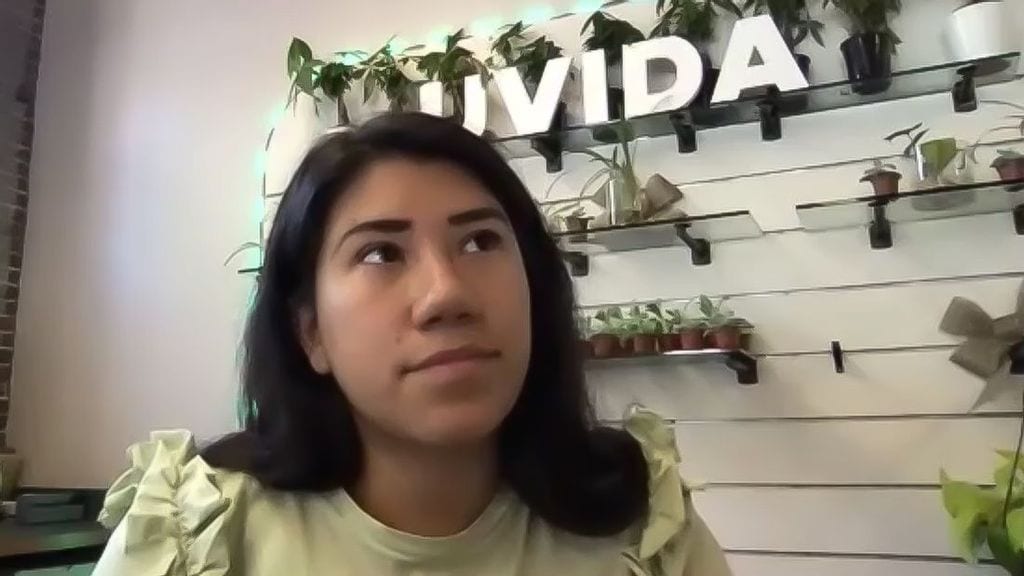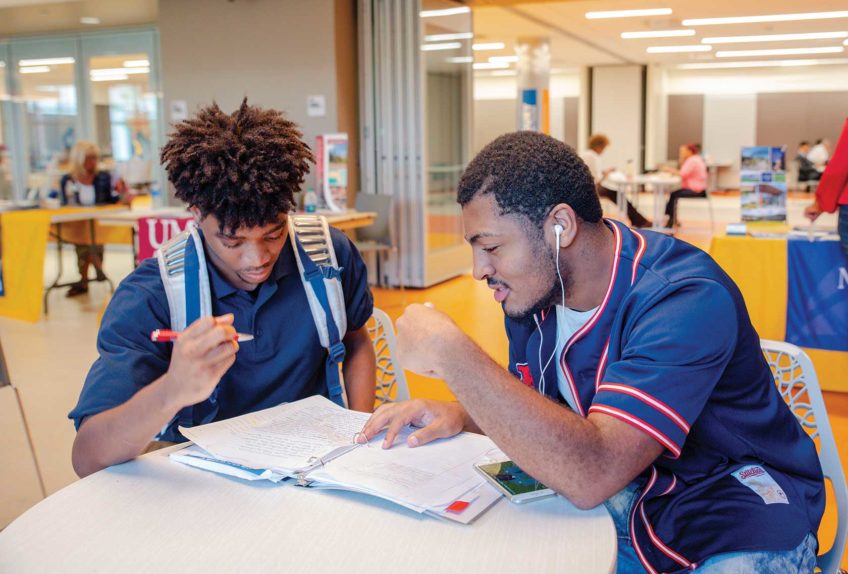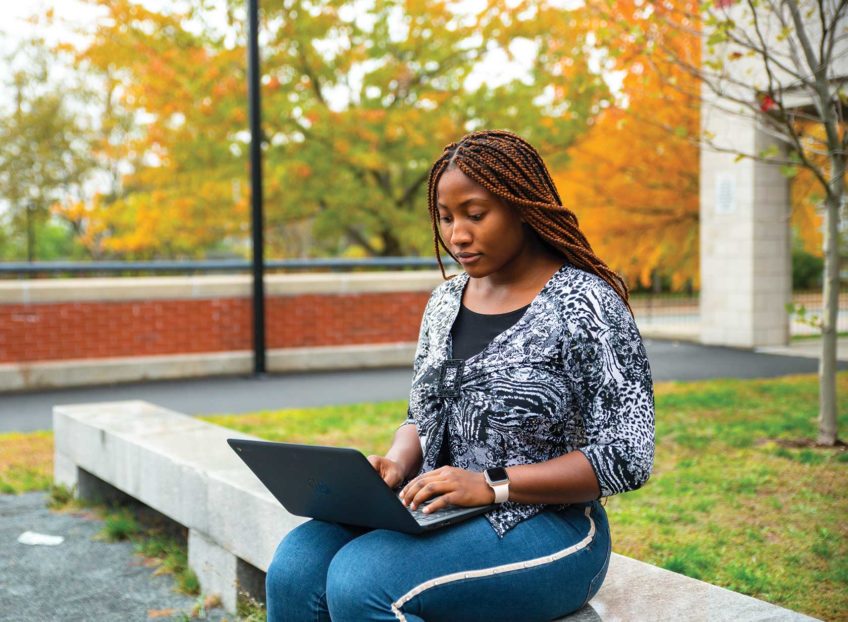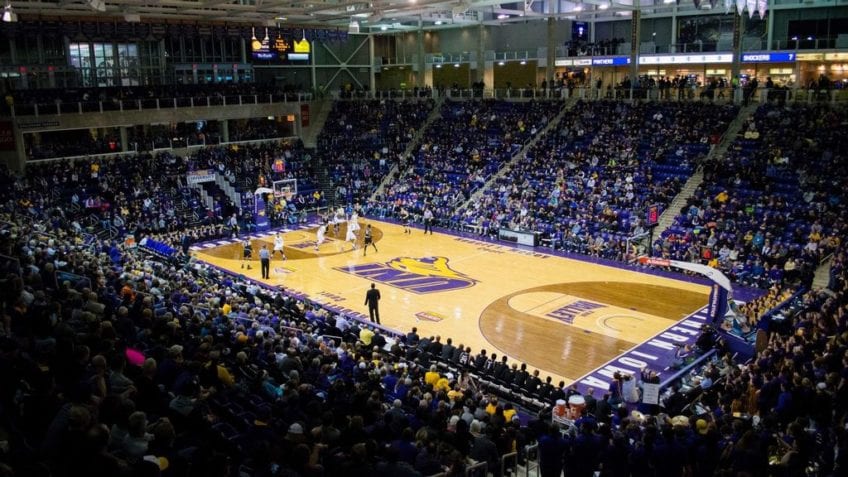
BOSTON — In a sunny storefront not far from the Boston Harbor, Maria Vasco lingers off to the side of the cash register, smiling but nervous, as she watches one of her first two employees ring up a customer.
For over a year, Vasco was the only employee — the founder and CEO — of Uvida, Boston’s first and only zero-waste shop.
The name comes from the Spanish word “vida” meaning “life.” Vasco said she tells customers “you give life” by shopping plastic-free and reducing waste.
Uvida offers a variety of home-goods essentials in plastic-free packaging, from deodorant and lip balm in cardboard tubes to tissues and toilet paper made from recycled materials.
“The business is just myself, which in the beginning was great. But it started getting isolated, getting to be too much on my plate. Right now is my first time having employees,” Vasco told Zenger News.
The storefront opened last December during the pandemic, but Vasco launched the business as an online shop in 2019, while still a full-time student at University of Massachusetts-Boston.

“I worked part-time at restaurants and internships just to make ends meet. Then at nighttime, I would stay up until four in the morning doing market research, looking at products, making my website,” Vasco said. “And it was like the best time of my life. I just was having so much fun doing it, that it didn’t matter how much I had on my plate. I always made time for that.”
Vasco started advocating for environmental issues in high school while competing with the debate team. That’s where she first came across the statistic that in 2050 the ocean will have more plastic than fish.
“I never thought the spark I felt was based on the things I was advocating for, I thought it was because I was debating,” Vasco said.
When it came time for college, Vasco, who was born in Cali, Colombia, and moved to East Boston at age 4, chose to attend UMass-Boston for its diversity and affordability. She was undocumented until her junior year of college, making her ineligible for federal financial aid. (Massachusetts allows undocumented students to pay in-state tuition.) Vasco’s debate coach suggested she pursue a degree in political science.
“By the first semester, I was like ‘no way, I cannot do this.’ It just wasn’t my spark.”
While looking for a class to fulfill a science requirement, Vasco landed on environmental science and quickly fell in love with it. After switching her major, she started talking to her professors outside of class, learning about their specific areas of research and expertise. Through those conversations, Vasco decided she wanted to focus on plastic pollution.
“This is something I can control, because I touch plastic every day,” Vasco remembers.
It was during her freshman year of college that Vasco started trying out plastic-free products. There were some she loved, and some she didn’t, but purchasing any of them required a lot of online research. When she did settle on a product she liked, she would have to remember the website in order to restock. She wanted a curation of products she liked all in one place, and that sparked her idea for Uvida.
“I am my own ideal customer,” Vasco said. “I also need to shop plastic-free. I use all these products myself. So I realized that if I don’t have this store, even in my own city, and I have to be the one that does it, then I will.”

Moving forward
During Vasco’s junior year of college, she applied for and received the $5,000 Entrepreneur Scholarship founded by Dan Phillips, who was a UMass-Boston professor at the time. As part of the scholarship, she received a year of mentorship from Phillips, who drilled her on the importance of market research and helped her as she launched the Uvida website.
“That was basically the green light for me. I have this check for $5,000. I’m 19 years old. I have nothing to lose. Let me try to actually do this.”
Although the website launch was successful, Vasco always knew she wanted a brick-and-mortar storefront. The online business lacked the face-to-face interactions Vasco sought, and having a real storefront meant customers could wander in and buy essential products when they needed them, rather than ordering in advance online.
With many small businesses shutting down during the pandemic, Vasco had her pick of retail spaces. She selected one in Boston’s North End neighborhood, accessible by public transportation and centered in a mostly car-free community. The storefront opened in December 2020, just in time for the holiday rush.
Entrepreneur as mentor
Now, six months later, Vasco is in a position to mentor others, even as she is still learning herself.
“I’ve learned so many things already this month,” said Maybelline Perez, 23, a retail associate at Uvida. “That sisterhood, that community — I love it. There’s a lot of competition in the entrepreneurship world and having that community is really heartwarming.”

Perez, who met Vasco through mutual friends in East Boston, is working on her own online store for sustainable jewelry handmade by artisans in her native El Salvador. She has her own small display in Uvida, and said she’s learned a lot about running a business from working with Vasco.
Uvida also hosts pop-ups with other small sustainable businesses nearly every weekend, the only criteria being they offer a plastic-free product or service. Vasco knows from experience how expensive it can be for a small business to secure a pop-up, and it’s a chance to collaborate and support other entrepreneurs.
“Community itself is the reason brands can grow here,” said Katie Diasti, the founder and CEO of Viv, an earth-friendly personal-care brand. Diasti also started her business in college, and Viv’s menstrual cups have done well on the shelves at Uvida.

“I’m always impressed with how supportive female founders are,” Diasti said. She said she and Vasco used to “hype each other up” in the comments of their Instagram posts when their businesses were first starting out.
Vasco plans to open another location in East Boston and to expand offerings at the North End location, including a series of community events. More immediately, she’s planning a ribbon-cutting ceremony since pandemic restrictions prevented her from hosting one in December.
“It doesn’t matter if they’re light-skinned or dark-skinned, or your background. If you’re an immigrant or if you were born here, if you’re high-status or low-status,” Vasco said of other young women entrepreneurs.
“If you really want something, you set your mind to it — and it takes a group of women supporting you to get anywhere.”
(Edited by Judith Isacoff and Fern Siegel)
The post Meet The Young Latina Immigrant Behind Boston’s First Zero-Waste Store appeared first on Zenger News.






